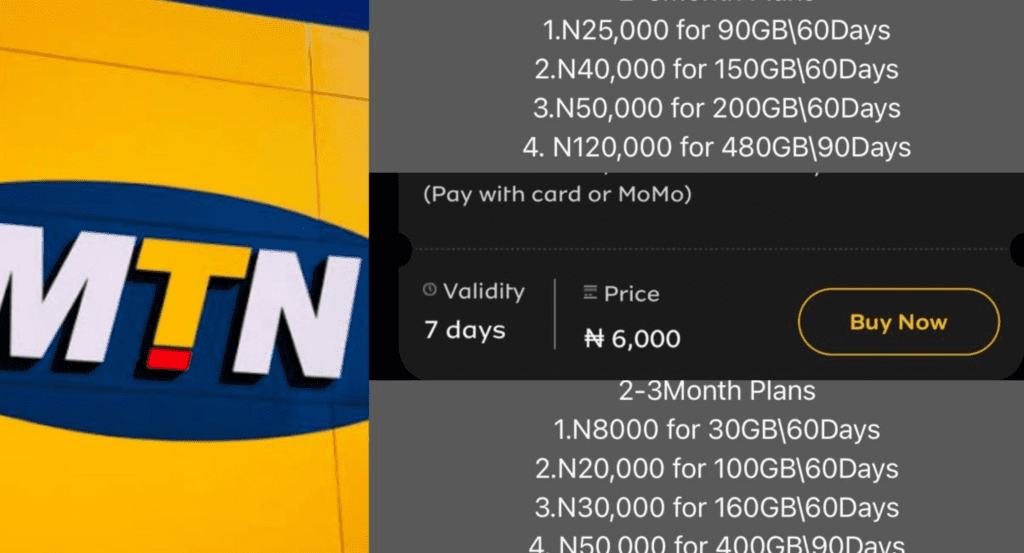MTN Nigeria has officially implemented a 50% tariff increase on its data services, sparking widespread reactions among consumers and policymakers. The telecommunications giant raised data prices across various plans, citing rising operational costs, inflation, and economic challenges as key reasons for the hike.
The tariff adjustment follows growing concerns within the industry about the financial strain faced by telecom operators due to the depreciating naira, increased energy costs, and regulatory expenses. While MTN argues that the price revision is necessary to sustain service quality, many Nigerians have expressed frustration over the rising cost of connectivity in an already challenging economic environment.
In response to the price hike, the Nigerian House of Representatives has urged the Nigerian Communications Commission (NCC) and the Minister of Communications to suspend the proposed tariff increases across the telecommunications sector. Lawmakers argue that such hikes will further burden citizens and businesses that rely heavily on internet access for work, education, and commerce.
Reports indicate that some data plans have seen price jumps of up to 200%, with customers now paying significantly more for previously affordable bundles. Consumer advocacy groups have also called on the government to intervene, emphasizing the need for policies that balance business sustainability with affordability for end users.
As the debate over telecom pricing intensifies, regulatory authorities are expected to engage with service providers to explore possible solutions. While MTN and other operators insist that cost adjustments are unavoidable, the Nigerian public remains concerned about the long-term implications of rising telecom expenses on digital inclusion and economic productivity.






















